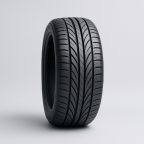
Car Modifications You Need to Inform Your Insurer Of
Any car can be modified, for practical reasons, such as adding air conditioning or for aesthetics, including alloy wheels, new rims, or a vinyl car wrap.
The important factor is to ensure that, whatever the nature of the modifications you make to your car, you notify your insurer where relevant and confirm that your policy remains valid. Some changes are not accepted by most UK car insurers, so clarifying the impact – and potential increase or decrease in your premiums – is essential before you proceed.
Many car owners choose to customise the appearance or performance of their vehicles, particularly vintage, specialist or premium cars that can carry high market values and require niche insurance coverage.
Why Car Insurers Care About Vehicle Modifications
Not every car modification or adding upgraded car parts will mean your insurance costs rise. Still, if you fail to notify your insurer of something that impacts your vehicle's power, performance or appearance, there is a serious risk that the cover will be invalid. You will effectively be driving without insurance.
Insurers have varying policies, but they usually consider anything added or changed within a car since it left the original manufacturer as a modification – anything factory-fitted such as a GPS tracker or automatic braking, is not a modification.
Car insurers assess the risk associated with your vehicle, so even seemingly minor changes such as new colour bodywork or adding different lights might be a factor for your insurance coverage.
When assessing a modification, the insurer will also evaluate whether they believe the car is more vulnerable to theft, whether higher power will make the vehicle more exposed to accidents, or whether the car's value will rise and make it more expensive to repair or replace.
Modifications You Must Declare to Your Car Insurer
Although this isn't an exhaustive list, we've run through some of the most popular vehicle modifications your insurer needs to know about.
If you decide not to declare a change to your car, you will likely find that you have no financial protection or safeguards against third-party liability in the event of an accident and may have no insurance coverage to claim from if your vehicle is stolen.
Changes to Your Car Bodywork
Any modifications to your car's exterior can affect the market value, risk exposure to theft, and the amount your insurer will need to pay for repairs. If you change any of the following, you must advise your insurer:
- Spoilers
- Wheel arches
- Skirts and wings
- Lighting
- Tinted windows
Vinyl car wraps, resprays and partial wraps all count as a modification to the bodywork. If you choose to install tinted windows, these must normally be in the rear of the vehicle.
The legal requirement is that a tinted car window allows at least 75% of light into the car for the front windscreen and 70% for side windows in the front.
Lighting must also comply with UK road legislation, where all headlights must be either white or yellow, with red taillights. Although there are variations in the configuration and power of car lights, they cannot be neon or any other colour that causes a distraction or imitates an emergency vehicle.
Changes to Car Wheels and Tyres
Replacing your tyres or wheels can impact how the car handles and grips the road, whereas upgrades to the wheel increase the cost of replacing those parts or repairing the vehicle.
Any changes, such as wider profile tyres, wheels, or alloys, must be notified to the insurer.
Upgrading the Car Interior
Although many drivers assume that changing their upholstery or dashboard display will not affect their insurance, a provider will need to know because these adjustments are considered major modifications and can alter the car's valuation.
If you replace or remove car seats, update or change any part of the steering column, including installing a larger or sports steering wheel or changing the pedals, you will need to report this.
Other Notifiable Car Modifications
Modifications to the engine are always notifiable, including changing or replacing the air filter, exhaust or transmission. Common upgrades include adding a supercharger or a turbocharger, which normally increases the cost of insurance because a more powerful vehicle is at a higher risk of an accident.
Upgraded brakes or suspensions change how a car performs on the road, so they are also notifiable.
You must also contact your car insurance if you add parking sensors, a tow bar, a roof rack, decorative decals, or new air conditioning.
Car Modifications That Can Reduce Insurance Premiums
Some alterations are beneficial and reduce the risk of a vehicle being stolen or involved in an accident – a set of parking sensors may reduce your insurance costs because they mitigate the potential you will cause an accident while manoeuvring in a car park.
Adding extra security, such as an additional locking device such as an immobiliser, an insurance tracking camera, or GPS, also protects your car from theft and is a positive from an insurer's perspective.
Other car modifications may be notifiable but are unlikely to have a tangible effect on the cost of your insurance. Adding winter tyres is a good move if you expect to drive in icy or frosty conditions and can prevent accidents in hazardous weather such as snow or black ice. However, most insurers won't reduce your insurance costs for the proportion of the year when you have seasonal tyres fitted.
It remains important to let your insurance know of any modifications you make, regardless of whether they affect your premiums. If you need to claim and any aspect of the vehicle is not consistent with the reported details on file, it could reduce the claimable value or render your cover invalid.
Car Modifications Insurers May Reject
Some car modifications must be carried out carefully because if the upgrade breaches the law or makes the car significantly riskier, the insurer may refuse to cover it.
For example, if you fit tinted windows or add a tinted film to existing windows and do not have the documentation to evidence compliance with the minimum light flow legislation, the windows will be illegal and are not insurable.
Noise modifiers such as high-sound exhausts are also more difficult to insure, as are modifications to wheels and LED headlights that are not road legal.













